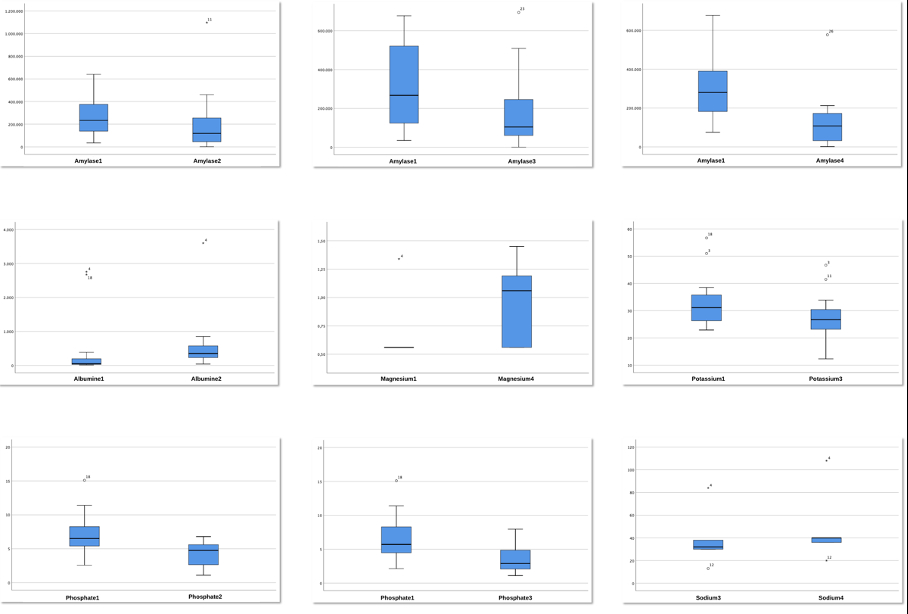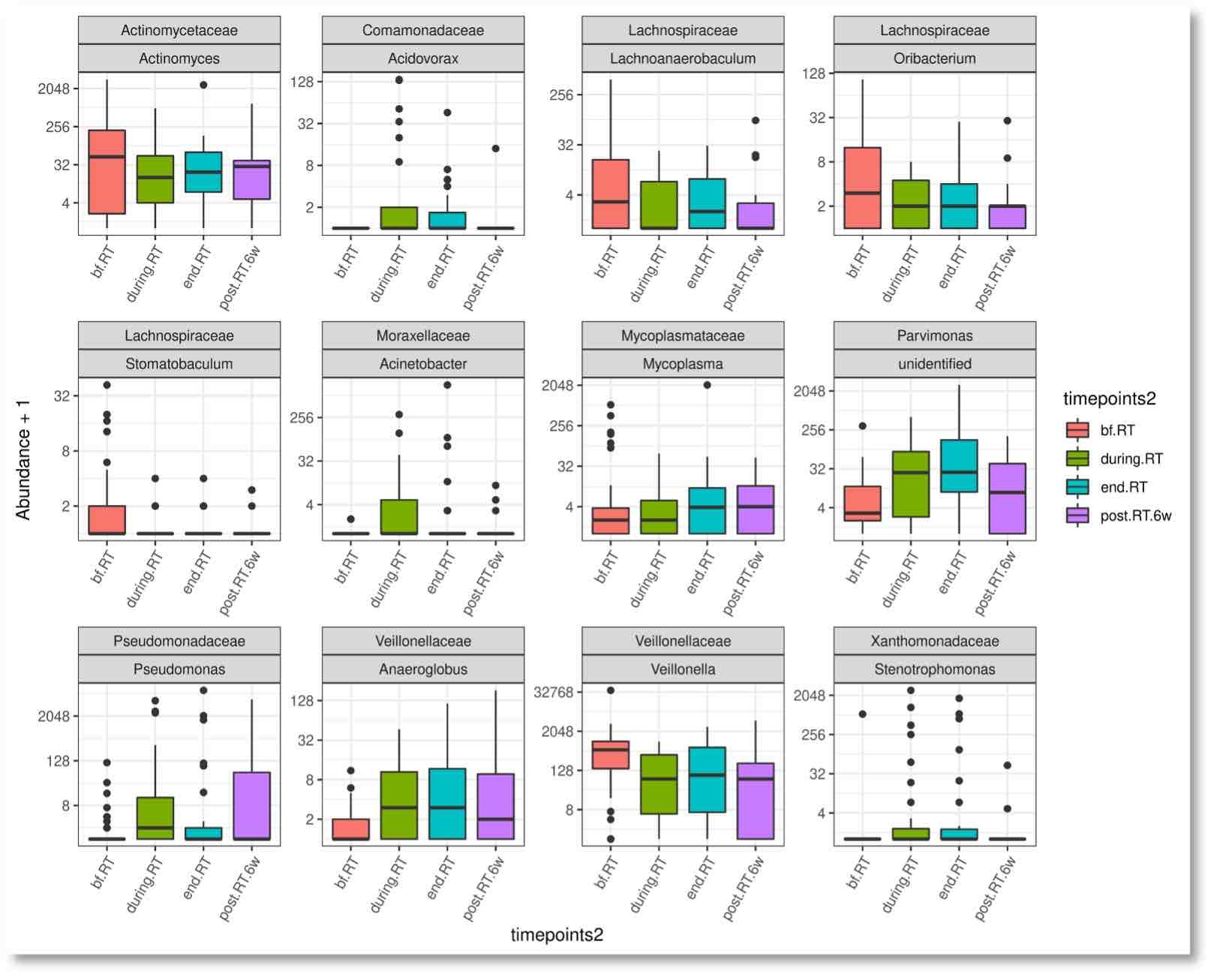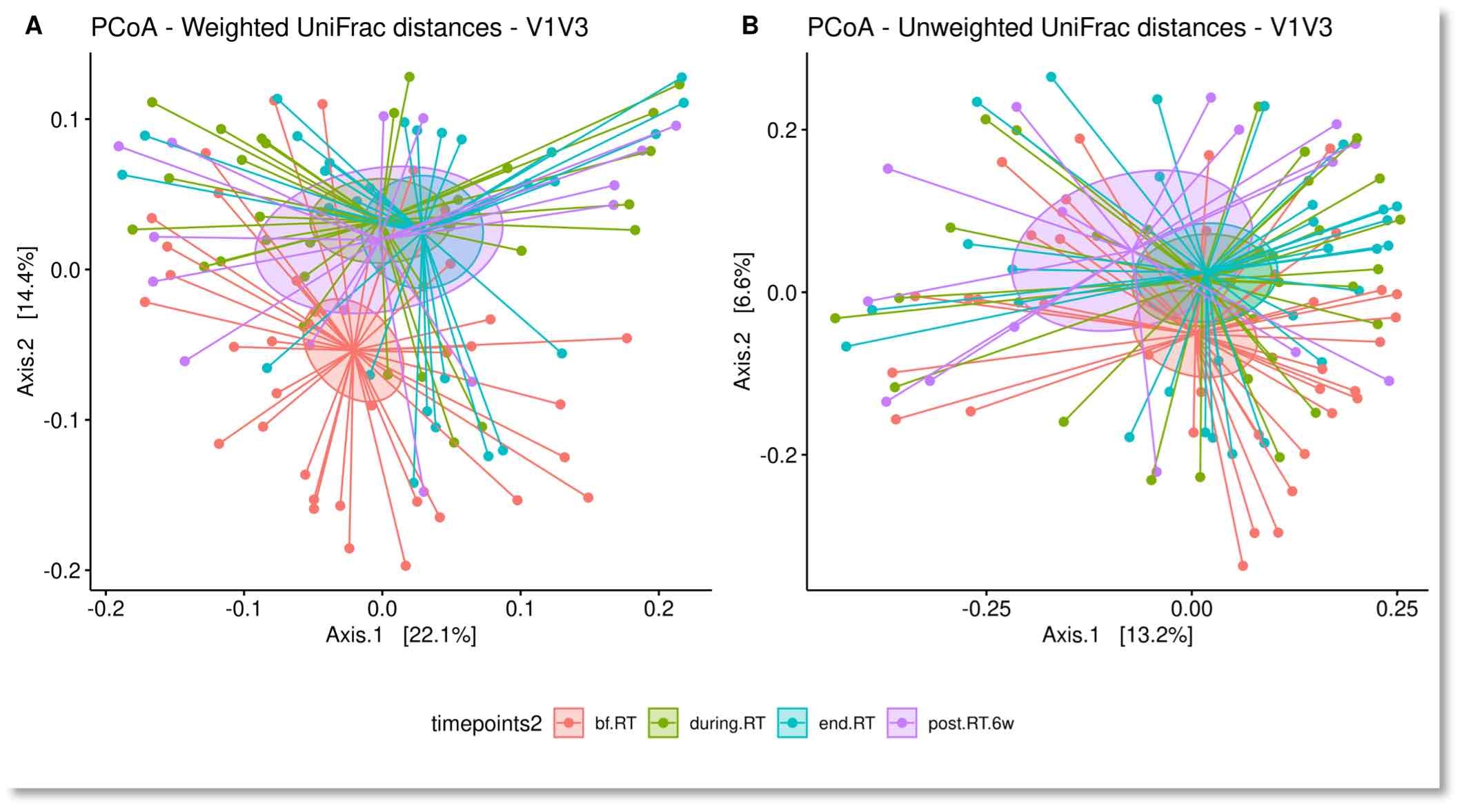IADR Abstract Archives
Microbial and Sialochemical Saliva Shifts With Tumor Irradiation
Objectives: Analyze the effects of head and neck irradiation on oral salivary microbiome and sialochemical composition
Determine changes in analytes and biomarkers during irradiation
Assess alterations in bacterial abundance and diversity due to irradiation
Methods: The study conducted at University Hospital Regensburg included 36 eligible patients who received radiotherapy treatment between Sep 2019 and Dec 2020. Saliva samples were collected from all subjects and analyzed for biochemical and microbial composition. Saliva collection was done using Salivettes® for clinical chemistry and tubes with buffer solution for microbiological testing. Sialochemical analysis was performed using a Roche Cobas pro c503 system, and microbial analysis was conducted by 16S-rDNA semiconductor sequencing. Nucleic acids from saliva specimens were extracted and quantified using PCR on a LightCycler 480 II Instrument.
Results: Sialochemical analysis of saliva samples at four time points showed significant changes in parameters such as albumin, amylase, potassium, magnesium, phosphate and sodium. No significant changes were observed in parameters such as calcium, chloride, protein, LDH, and pH. Microbial evaluation of saliva showed no significant change in alpha diversity, but bacterial abundance decreased significantly at time points 2 (during RT) and 3 (end RT) compared to baseline. Significant changes in beta diversity were observed in weighted UniFrac distance metric. Veillonella was identified as a biomarker, and several bacterial genera showed significant differences in relative abundances during the observational period.
Conclusions: The present study reveals radiation-induced damage to the salivary glands in patients, resulting in compositional alterations and changes in the salivary microbiome. The findings are consistent with previous studies that have shown increases in albumin and decreases in amylase levels during radiotherapy, as well as alterations in pH, sodium, potassium, calcium, chloride, and magnesium concentrations. However, some differences were observed compared to previous studies, indicating that factors such as sample processing and methodology may affect the results. Further research is needed to better understand the impact of radiation on salivary gland function and its implications for oral health.
Determine changes in analytes and biomarkers during irradiation
Assess alterations in bacterial abundance and diversity due to irradiation
Methods: The study conducted at University Hospital Regensburg included 36 eligible patients who received radiotherapy treatment between Sep 2019 and Dec 2020. Saliva samples were collected from all subjects and analyzed for biochemical and microbial composition. Saliva collection was done using Salivettes® for clinical chemistry and tubes with buffer solution for microbiological testing. Sialochemical analysis was performed using a Roche Cobas pro c503 system, and microbial analysis was conducted by 16S-rDNA semiconductor sequencing. Nucleic acids from saliva specimens were extracted and quantified using PCR on a LightCycler 480 II Instrument.
Results: Sialochemical analysis of saliva samples at four time points showed significant changes in parameters such as albumin, amylase, potassium, magnesium, phosphate and sodium. No significant changes were observed in parameters such as calcium, chloride, protein, LDH, and pH. Microbial evaluation of saliva showed no significant change in alpha diversity, but bacterial abundance decreased significantly at time points 2 (during RT) and 3 (end RT) compared to baseline. Significant changes in beta diversity were observed in weighted UniFrac distance metric. Veillonella was identified as a biomarker, and several bacterial genera showed significant differences in relative abundances during the observational period.
Conclusions: The present study reveals radiation-induced damage to the salivary glands in patients, resulting in compositional alterations and changes in the salivary microbiome. The findings are consistent with previous studies that have shown increases in albumin and decreases in amylase levels during radiotherapy, as well as alterations in pH, sodium, potassium, calcium, chloride, and magnesium concentrations. However, some differences were observed compared to previous studies, indicating that factors such as sample processing and methodology may affect the results. Further research is needed to better understand the impact of radiation on salivary gland function and its implications for oral health.



